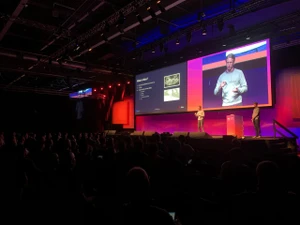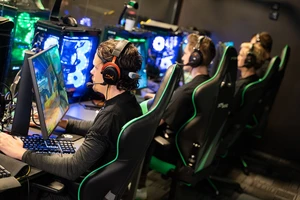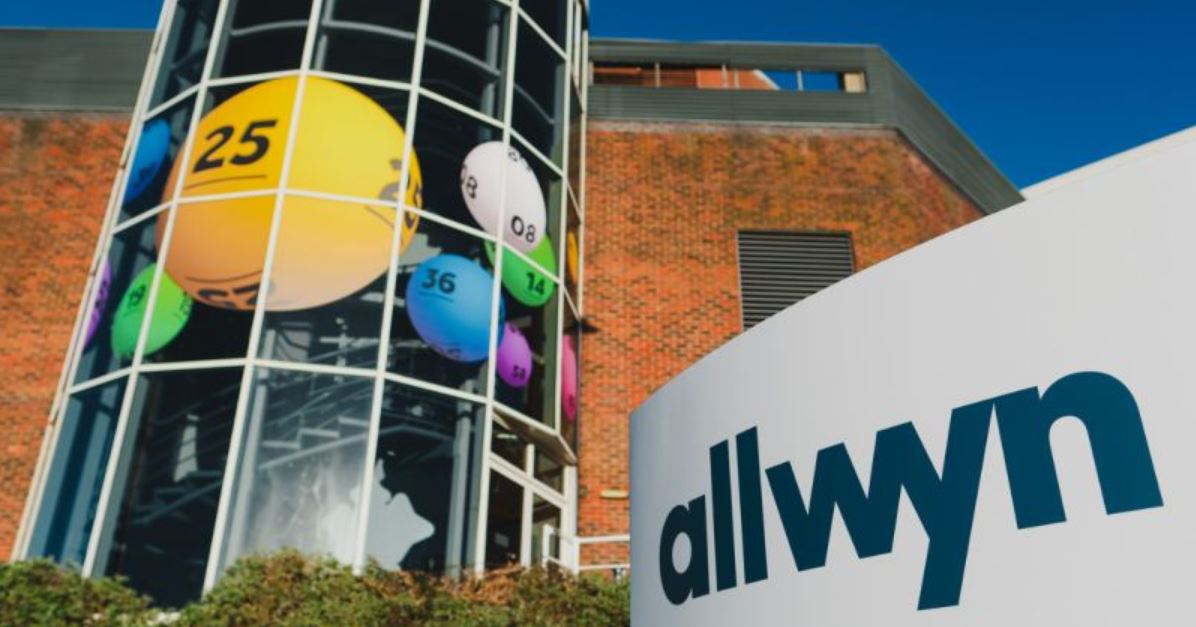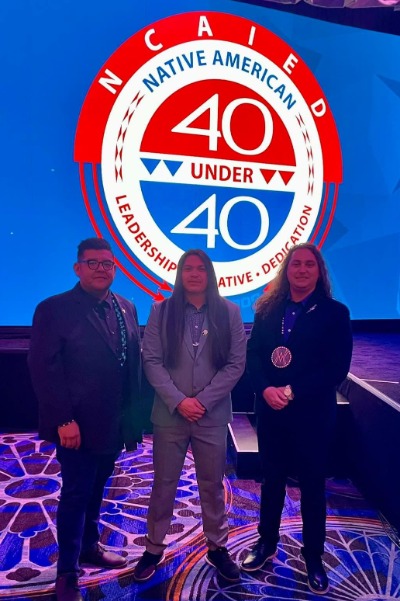
Esports data specialist Abios celebrates its tenth anniversary in 2023, a span that includes a major pivot, successful funding rounds and the acquisition by Kambi.
E-sports and esports betting in particular are still a young industry, but Oskar Fröberg and Anton Janér, co-founders of data expert Abios, could be considered veterans.
You have already gone through the classic startup pivot. Abios started as a B2C scheduling platform for fans to track esports tournaments, schedules and results. Products like a Chrome extension were popular but difficult to monetize.
This led to an emphasis on data and a focus on APIs and visualizations. This B2B focus has of course paid off completely.
“Sometimes we refer to our current business as one of our backup plans, but that’s not really the truth,” says Fröberg. “When we built the B2C platform, we saw it as a potentially good business in itself, but we had a number of paths we could take.
“One of them was B2B, one of them was building our own betting platform and we saw the best opportunities in B2B.”
Its APIs and visualizations also convinced a high-profile betting company to get into the game. Kambi acquired Abios in 2021 for SEK 270 million.
Problem solving and passion
At a time when other companies in the industry are struggling, running out of opportunity, or struggling to establish themselves, Abios is arguably an outlier. It secured funding in the early stages. With Kambi’s experience in sports betting, it is now shaping the way esports betting is consumed.
But they’re not sure whether they should be classified as veterans. “We started early; I still feel young and alive,” laughs Janér.
For him, a company’s value lies in its ability to solve problems, which in turn contributes to Abios’ relative longevity.

“After working on these problems for ten years, from processing esports real-time data from servers to working with analog information, we have been able to solve these problems to a certain extent,” he explains. “This experience is very difficult to replicate.”
The passion for the industry and the right people underpin this experience.
“By ‘the right people’ I mean people who know esports, live and breathe it, and are passionate about entrepreneurship and building a business from the ground up. We have people around us who support us in every way, the best possible people in every single role, and once you have them the rest takes care of itself.”
Facing a market correction
While Abios is now at the center of esports betting’s efforts to break into the mainstream, recent events have caused concern about the sector’s prospects.
Many e-sports betting providers have excited banks and investors, raising capital and then spending it without any significant return. Some are turning away from esports and launching a fire sale of assets, others are going from one crisis to the next.
This is not limited to esports betting. The organizations’ ratings have also fallen by more than 90% in some cases.
In Fröberg’s eyes, the current difficulties definitely serve as a market correction.
“We’ve been in the industry for ten years and have seen a lot of companies come and go, a lot of brands that created a lot of buzz and raised tons of capital that were never heard from again two or three years later,” he says . “During the pandemic years, there were many companies that were listed but never had a finished product.”
Ultimately, it is “probably quite good for the industry” if the macroeconomic environment sorts itself out. Those who find the right product for the market will stick around and excel, he predicts.

That doesn’t mean it’s necessarily a fair market correction. “We’ve seen a lot of ventures where we think the idea is right and the product is good, but it’s a matter of timing,” he adds. “Maybe the industry isn’t mature enough yet, maybe it will take longer for these companies to find their place.”
Janér points out that this happens in every industry and in every country in the world.
“Most people should have been somewhat aware of the danger that something like this could happen,” he says. “Healthy companies are less affected by this, but everyone is.”
Championing the future of esports
Janér believes the digital nature of esports means the industry as a whole will weather the storm better than most. And there’s still a lot of optimism in the industry – considering how young the esports sector is in 2023, each year still represents a massive improvement over the previous year.
He’s also excited about the technology available in the industry that doesn’t exist in any traditional, analog sport. “This will certainly create some really interesting products and opportunities in the future.
Fröberg believes that critics of e-sports either don’t know the industry or haven’t done enough research. At worst, they may have certain prejudices about games in general.
“It’s still a fast-growing market finding its way, but if you know the industry intimately you know it’s here to stay and will get bigger and better,” he says.

“There are a lot of things that are exciting, but from a purely economic perspective, the esports audience is still very young and has little disposable income. As these fans mature, they will spend money to entertain themselves. This will change the industry.”
Janér points out that all emerging, established and popular betting sports have different advantages and disadvantages and he cannot understand why eSports would be less suitable for this. However, there is still a “major lag” in the information available on esports performance across different platforms and across different customers. In short, the evidence may be there, we just haven’t seen it yet.
“[But] It’s really taking root and we’ll see it only grow from here,” he adds. “If it gets as big as American football, I can’t answer, but it will be in an interesting place.”
Life in the Kambi family
Of course, being part of a company that has successfully leveraged the popularity of American football to build a significant presence in the emerging US market is probably a good place to be, as esports embarks on the same journey.
This access to sports betting expertise, both in terms of the core product and the know-how to navigate a difficult regulatory landscape, is arguably what many newcomers to the esports betting space have been missing.
Janér says Abios is “somewhat humbled” by how difficult it is to navigate the sports betting industry.

This makes the partnership particularly valuable; Abios can draw on Kambi’s expertise in compliance, while Kambi has an esports “black ops team” that offers an additional edge and products beyond the core betting suite.
The provider still “provides infrastructure for the esports industry,” as Fröberg puts it, although under Kambi’s ownership the focus is on the betting component. “It was obviously interesting because there was money to be made there, but before we just looked at it as a whole [of many] Sectors you have to be in.”
Revision of the e-sports quotas
So what does this mean for the product roadmap? The Odds product is the focus, but at this point it’s less about innovation and more about introducing new products and features. Although these plans are particularly ambitious, Fröberg predicts that the quota product will be industry-leading by 2024. After 2024 they will start innovating.
He argues that it is similar to the original API product. “[That] created the field, set the tone and truly broke new ground. The same applies to our widgets and visualizations.
“With Odds we are now bringing the best that traditional sports have to offer and bringing e-sports on a par with the odds [in 2023] Then next year we want to innovate, break new ground and try to find the kind of products that have never been seen before in traditional sports.”
Whether they consider themselves veterans or not, Fröberg and Janér have demonstrated staying power in a sector that is young, experiencing growing pains and yet has failed to convince the entire gaming industry of its value.
There is no secret formula, but if you were to give advice to others, it would be simple: founders should proceed slowly but deliberately.
Ignore the business jargon
“Don’t be too concerned with getting too big and making money too quickly,” says Fröberg. “When we started e-sports when we were still young, we didn’t have the goal of being a billion-dollar business in three years.
“The industry was growing. We knew it would continue to grow.”
It is equally important for e-sports entrepreneurs to think for themselves, he adds.
“There’s all this entrepreneurial jargon that’s intended as conventional wisdom about how you should grow companies,” he says. Ignore it. “Keep your eyes open and see what your industry and the competitive landscape looks like and think for yourself.
“Make smart and informed decisions based on your own analysis. That’s something we’ve lived by and it’s helped us avoid stepping on a lot of different landmines.”
But despite having been in the industry for ten years, neither Fröberg nor Janér feel like they’re anywhere near finished. There is a lot of innovation around data APIs and huge opportunities to create something completely new around odds and betting products for esports.
“We are building infrastructure for e-sports,” says Janér again. “Whether we’re newbies or veterans, we’re happy to continue doing this.”






